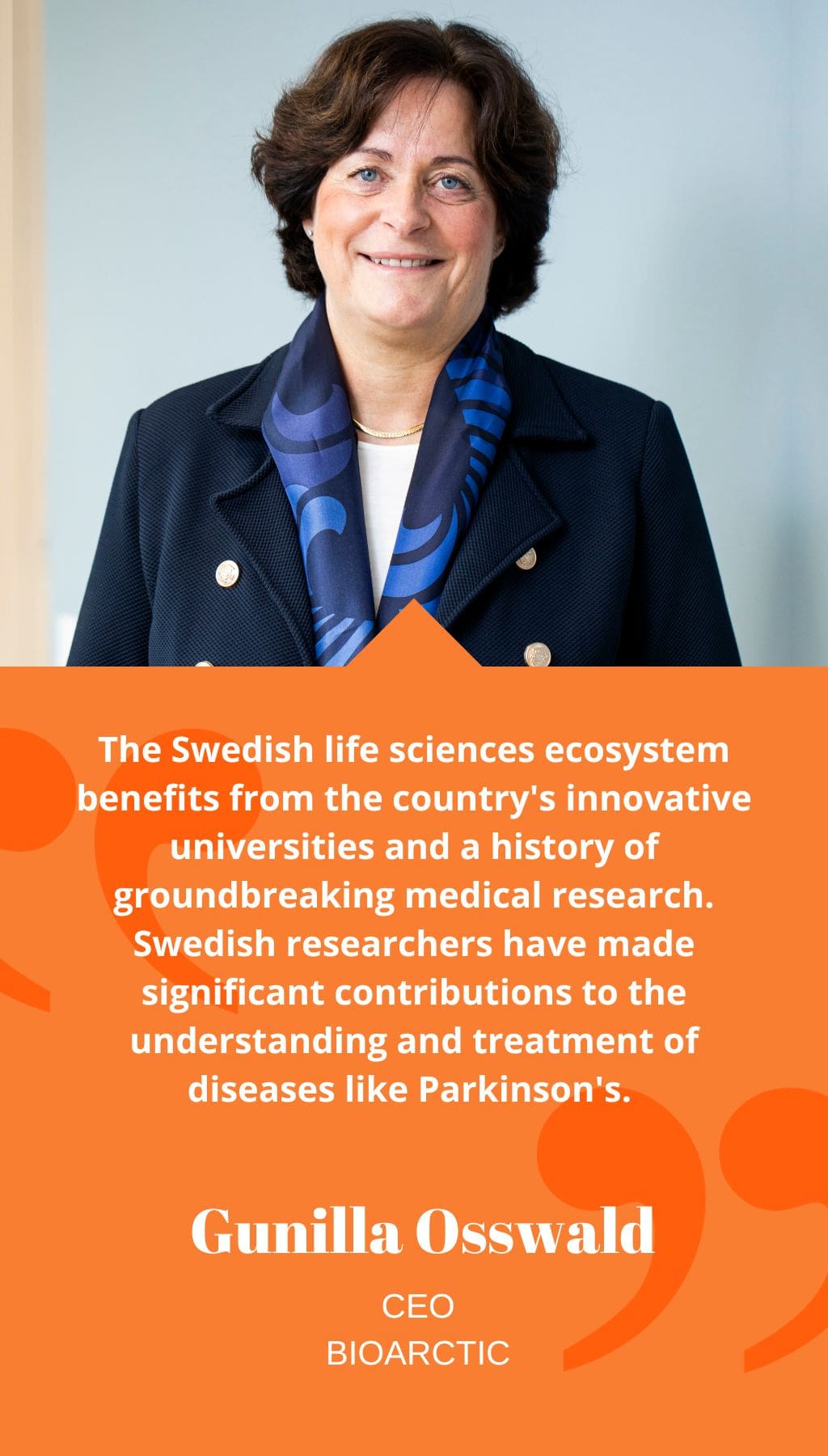
- Sweden | 20 July 2020

BioArctic is often highlighted as one of the incredible success stories in Swedish life sciences. However, not all of our international readers will be familiar with the company. Could you start by introducing the story of BioArctic?
BioArctic is a research-intensive Swedish biopharma company focused on developing new treatments for Central Nervous System (CNS) disorders. The company aims to address the underlying causes of diseases like Alzheimer’s and Parkinson’s, rather than just treating the symptoms. Its lead compound, BAN2401, targets the toxic forms of misfolded amyloid-beta protofibrils and oligomers in Alzheimer’s patients. The company was founded in 2003 by Professor Lars Lannfelt and Professor Pär Gellerfors, based on breakthrough discoveries made at Uppsala University. The collaboration with the Japanese pharma company Eisai for the development and commercialization of BAN2401 has been highly successful, and a Phase III study for early Alzheimer’s disease has been initiated. BioArctic is also developing treatments for Parkinson’s disease in collaboration with AbbVie, with the lead compound ABBV-0805 currently in Phase I study. The company has a solid financial situation with upfront and milestone payments from partnerships, and a strong portfolio of innovative programs in collaboration with universities and hospitals.
Sweden is known for its tradition of excellence in medical research embodied by the Nobel Prize in Physiology or Medicine awarded in Sweden. What do you see as the key strengths of the domestic life sciences ecosystem?
The Swedish life sciences ecosystem benefits from the country’s innovative universities and a history of groundbreaking medical research. Swedish researchers have made significant contributions to the understanding and treatment of diseases like Parkinson’s. For example, Professor Arvid Carlsson’s work on dopamine deficiency in the brain led to the development of Levodopa, an effective drug for Parkinson’s. The “teacher’s exemption” in Sweden, which allows researchers to retain intellectual property rights to their inventions, encourages innovation. The ecosystem also gained strength after the mergers of Astra with Zeneca and Pharmacia with Pfizer, which led to the emergence of life science hubs and the growth of small innovative biotech companies. The Stockholm-Uppsala region is a particularly vibrant hub, with AstraZeneca playing a significant role. The support of the Swedish government and European authorities through grants and funding has also been crucial for the success of companies like BioArctic.
The Swedish government seems committed to the development of the domestic life sciences sector. To what extent has this support helped make BioArctic a success locally and internationally?
Support from public authorities, such as non-dilutive grants from Vinnova, the Swedish innovation agency, has played a crucial role in BioArctic’s success. Although the grants were relatively small, they came at critical times in the company’s development. For example, a grant in 2014 helped BioArctic start the process development of its Parkinson’s program, which eventually led to a strategic partnership with AbbVie and significant financial returns. BioArctic has also received grants from the EU Horizon 2020 program, including funding for its potential treatment for Spinal Cord Injury. The support from Swedish and European authorities acknowledges the quality of BioArctic’s work and provides encouragement to continue its innovative research and development.














